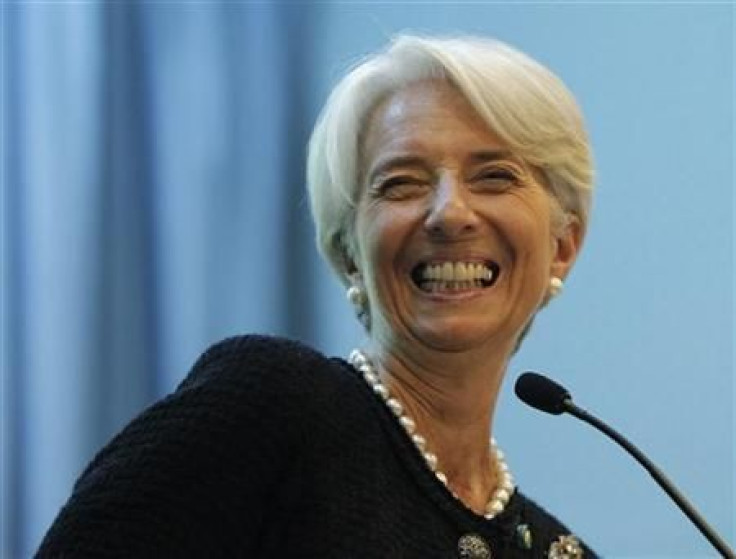IMF Chief Calls for 'Political Clarity' in Italy

The head of the International Monetary Fund called on Thursday for political clarity in efforts to tackle the debt crisis that has gripped Italy, saying uncertainty around who would succeed Prime Minister Silvio Berlusconi was fuelling market volatility.
Christine Lagarde was speaking during a visit to China, as Rome politicians were scrambling to find a replacement for Berlusconi, who has said he will step down when parliament approves reforms aimed at placating markets.
No one exactly understands who is going to come out as the leader. That confusion is particularly conducive to volatility, Lagarde told a news conference in Beijing.
So from my perspective, political clarity is conducive to more stability and my objective from the Fund's point of view is better and more stability.
China -- which holds an estimated 25 percent of its $3.2 trillion of foreign exchange wealth in euro-denominated assets -- is equally keen to see clarity and stability take hold in the euro zone, the country's single biggest export market.
Recently Europe has been plagued by the sovereign debt crisis. We hope European countries will overcome the temporary difficulties, stabilize the domestic financial markets and push for Europe's economic recovery and growth, Foreign Ministry spokesman Hong Lei said at a regular news briefing.
Italian 10-year bond yields were trading above 7 percent on Thursday, a level most market economists consider unsustainable for financing debt of more than 2 trillion euros, raising fears of a break-up of the euro zone.
Lagarde, a former French finance minister, declined to comment on reports that German and French officials have discussed plans for a radical overhaul of the European Union to create a more integrated and potentially smaller euro zone.
YUAN APPRECIATION
She also said she believed Chinese authorities were prepared to let the yuan appreciate further, as demanded by many U.S. and other western politicians who accuse Beijing of holding its currency artificially low to give an unfair advantage to its exporters.
My understanding is that the authorities are prepared to let that appreciation continue in the months and years to come, she said.
Certainly from our perspective, with the goal of stability and the solid, balanced and sustainable growth that we pursue, clearly that's welcomed and encouraged.
Lagarde, who met vice Premier Wang Qishan and is due to meet Premier Wen Jiabao, said she had in-depth discussions with China's central bank chief Zhou Xiaochuan, a leading advocate of internationalizing the Chinese yuan currency.
But she said it was too early to include in the IMF's Special Drawing Rights unit, a basket of four currencies -- U.S. dollars, euros, Japanese yen and sterling -- in which the bulk of global trade is designated.
I don't the time has yet come, but there is a clear understanding that it will come in due course and that it will be a factor of the internationalization of the currency. In my view, there is a stronger signal that China is a key player but also an important partner in the composition of this... easily convertible currency of the IMF, Lagarde said.
(Reporting by Kevin Yao and Sui Lee Wee; Editing by Alex Richardson, Ken Wills and Nick Edwards)
© Copyright Thomson Reuters 2024. All rights reserved.











